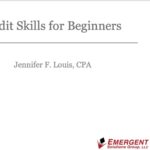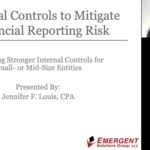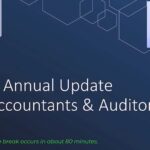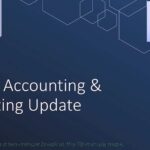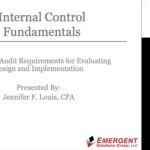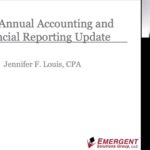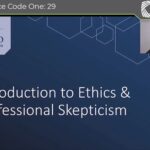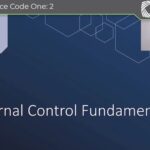Learn the basic skills new staff need to hit the ground running and efficiently complete assigned tasks, including what new auditors are expected to know and do, including the nature, timing, and extent of common audit procedures. Focus on why certain procedures are performed and perform typical procedures.
Preparation, Compilations and Review Engagements (LIAA19/26)
This course is an introduction to preparation, compilation, & review engagements. During this course, we will compare and contrast these different engagements by reviewing the procedures that should be performed, different reports, as well as the level of assurance specific to each type of engagement.
Internal Controls to Mitigate Financial Reporting Risk – Designing Stronger Internal Controls for Small- or Mid-Size Entities
Internal controls are applied within an organization to satisfy objectives related to operations, compliance, and financial reporting. This module will provide practical analysis and tips for how a reporting entity can manage financial reporting risk in an effective and efficient way. This module will also differentiate the auditor’s responsibilities for internal controls under Sarbanes Oxley, Government Auditing Standards and Single Audit Act requirements.
Annual Update for Accountants and Auditors (LIAA13/26)
This course will look at the recent activities of FASB. We’ll cover standards effective in the current year as well as those that will be effective in the future. We’ll then switch gears and discuss standards issued by the Auditing Standards Board impacting audit engagements. We’ll look at the impact of the new standards and how you can prepare to implement them in a practical way. Discussion Leader: Melisa Galasso
Accounting and Auditing Update (LIAA12/26)
This course will look at the recent activities of FASB. We’ll cover standards effective in the current year as well as those that will be effective in the future. We’ll then switch gears and discuss standards issued by the Auditing Standards Board impacting audit engagements. We’ll look at the impact of the new standards and how you can prepare to implement them in a practical way. Discussion Leader: Melisa Galasso
Internal Control Fundamentals- Satisfying Audit Requirements (LIAA11/26)
Obtaining an understanding of the entity and its environment is part of assessing risk of material misstatement, in order to design the nature, timing and extent of further audit procedures necessary to obtain sufficient appropriate audit evidence to support the auditor’s report. A critical component of understanding the entity and its environment is to evaluate the design and implementation of internal control over financial reporting. Discussion Leader: Jennifer Louis
2025 Hot Topics A&A Update (LIAA08/26)
This course focuses on explaining the theory behind major issues and trends, enabling professionals to understand the most important aspects of relevant technical standards related to accounting and financial reporting. Discussion Leader: Jennifer Louis
What’s Going on at the GASB 2025 (LIAA17/25)
The GASB has been working on some big projects lately. This course starts with a look at the GASB standards effective this year, including GASB 94, Public Private Partnerships and GASB 96, Subscription Based IT Arrangements. We will include practical applications in the form of case studies to apply the topics. We will then switch gears to the GASB standards coming down the pike, including the major projects of the GASB. Discussion Leader: Melisa Galasso
Introduction to Ethics and Professional Skepticism (LIAA29/25)
Ethics and professional skepticism are a cornerstone of public accounting. This course will review the Code of Ethics for Professional Accountants that practitioners must adhere to. This course will outline the pressures, opportunities, and rationalizations that lead to instances of fraud. In addition, this class will walk through some interactive examples to illustrate various scenarios of noncompliance during engagements. Discussion Leader: Jaclyn Veno
Internal Control Fundamentals (LIAA28/25)
AU-C Section 315 requires the auditor to gain an understanding of the entity and its environment and the entity’s internal controls in order to design appropriate audit procedures. This course will review the key requirements of COSO which is one of the most widely used internal control frameworks. We’ll also review the limitations of internal controls. Additionally, this course will introduce the risk assessment process and the various audit procedures to evaluate controls and to determine whether to test the operating effectiveness of controls. Discussion Leader: Jaclyn Veno

